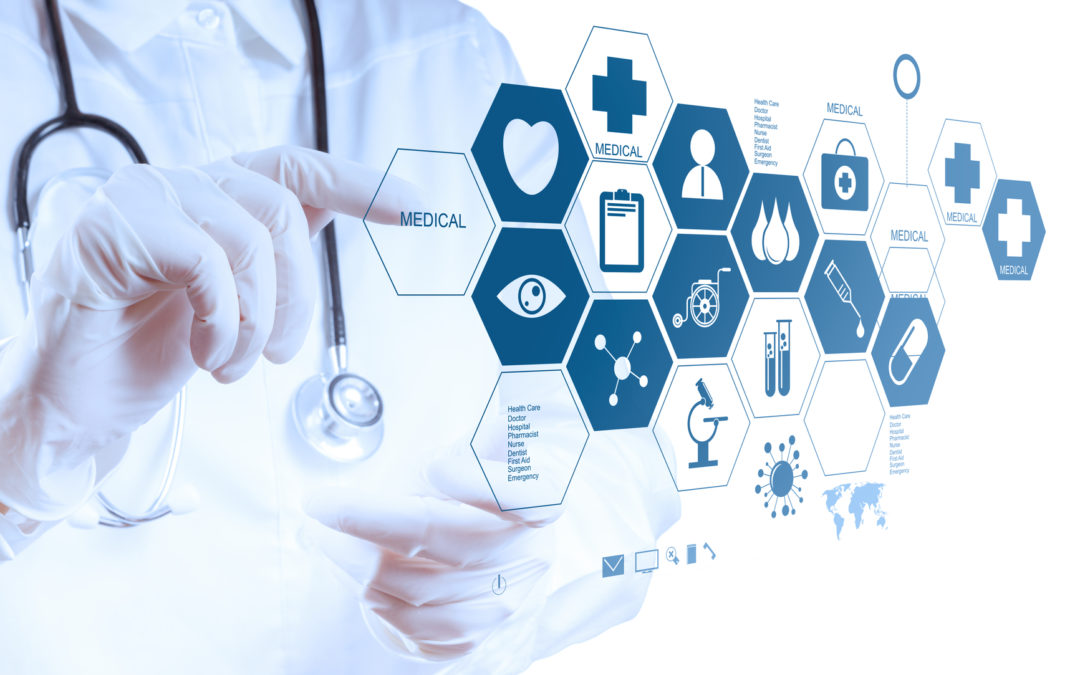One of the most exciting professions to be in right now is medicine. There are so many remarkable advances taking place it is breathtaking, and almost impossible to keep up.
If you happen to be in London this coming weekend (6 May 2017), you could hear six experts in six exciting fields talk about the leading edge of medicine at The New Scientist’s Transformative Medicine lectures. Details here.
The programme promises the following insights:
- CRISPR gene editing – Can we edit the gene mutations that make us susceptible to diseases? What is the potential for gene therapy to treat common genetic diseases? Robin Lovell-Badgefrom The Francis Crick Institute will explain.

- Microbots are nanorobots with the ability to move through the body and seek out diseased cells. Frantisek Stepanek from the University of Chemistry and Technology, Prague will explain how they could be used to treat conditions such as cancer.
- Brain boosting – Could stimulation be used to improve brain function in healthy people? Nick Davis of Manchester Metropolitan University will show how non-invasive brain stimulation works, and explain why its possibilities are so exciting.
- Growing new organs – From heart disease to kidney or liver failure, many different ailments could be conquered if we could create new organs in the lab. Fiona Watt from King’s College London will discuss how close we are to this being a reality and what the risks are.
- Immune reprogramming – Using immune cells to fight diseases is revolutionising the field of medicine. Catharien Hilkens from Newcastle University will describe some of the unique challenges when using these “living drugs” as a therapeutic tool.
- Longevity – Ageing is now the main cause of serious illness and death worldwide. David Gemsfrom University College London will talk about the latest advances in biogerontology and possible interventions to protect against diseases of ageing.
No, it’s not a Star Trek convention. This is the real world of medicine today.
And they’re not even getting into the work of artificial intelligence, machine learning and data-driven medicine, which I think holds even more promise in the near future. Earlier this year, artificial intelligence scientist Sebastian Thrun (founder of Google’s driverless car project, amongst other things) and colleagues at Stanford University demonstrated that a “deep learning” algorithm was capable of diagnosing potentially cancerous skin lesions as accurately as a board-certified dermatologist. IBM’s Watson computer has been doing much the same with all forms of cancer for nearly two years.
Here’s an excellent article that explains what Thrun and his team are doing with deep learning algorithms (these are programs that define the rules of their work for themselves, and are not programmed like tradition software).
A few weeks ago, I recorded a video aimed at young people looking at medicine as a career. In the context of the above, it’s worth highlighting this video again:
What a remarkable time be alive.
Our case study in the Future of Work Academy in April looked at ‘The end of GPs and what it means for every profession.’ The case study is done in the format of a video news bulletin from the future and is exclusive to Academy members. We provide the video footage and a facilitators guide which equips you to have important conversations with your team to future proof yourself and your business.
This case study is about the impact of algorithms, artificial intelligence and supercomputers on the work that professionals do. It uses the medical doctor, specifically the GP or family doctor, as an example, but it applies to many other professions as well. It’s designed to not only give a glimpse of a highly probable future, but also to help you explore the organisational and personal implications of the coming revolution in artificial intelligence.
You can sign up to access the Future of Work Academy here for this case study and a host of practical resources to help you be future fit and thrive in the future of work.


